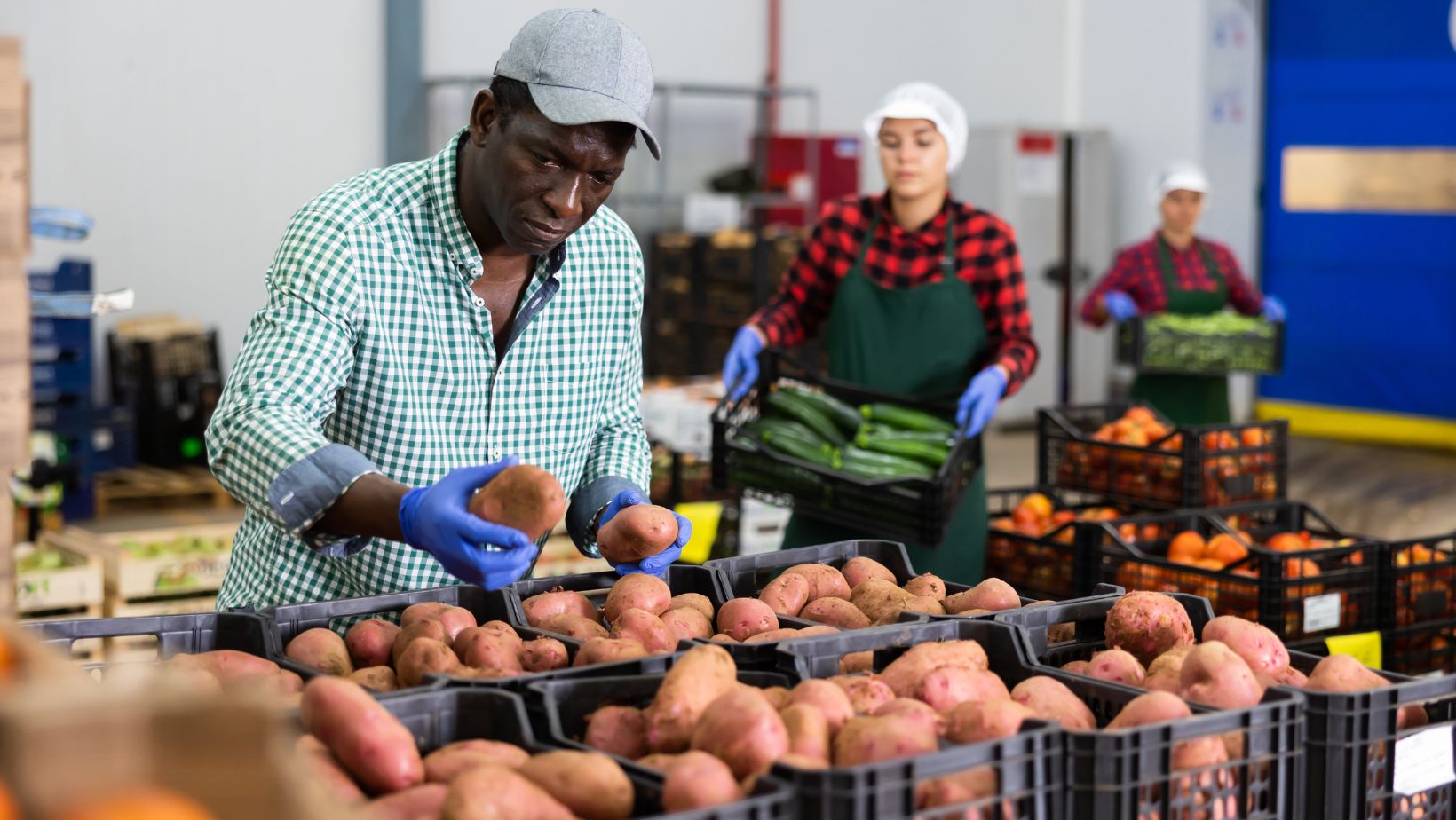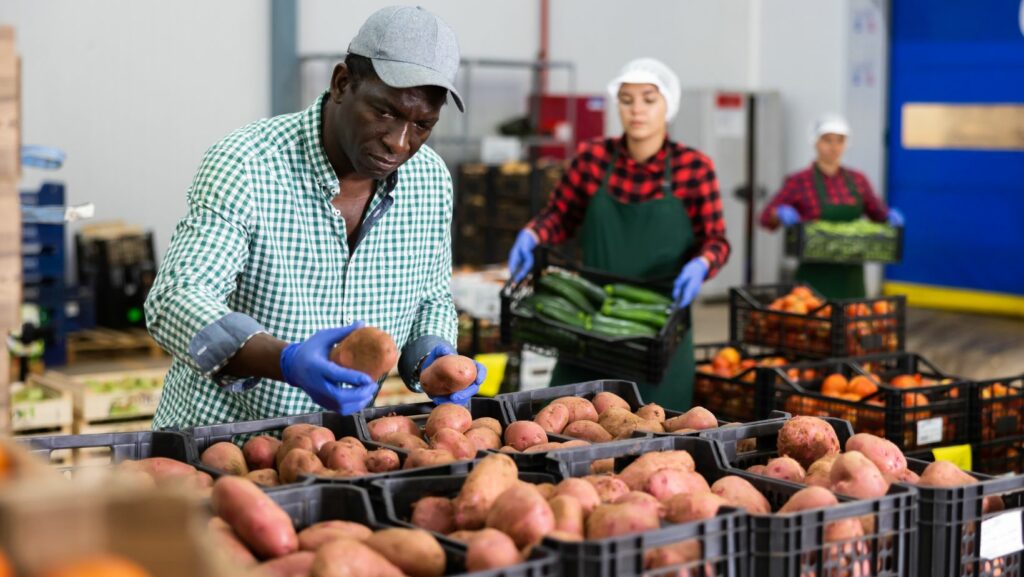 Food Innovation Jobs
Food Innovation Jobs
- Growth in Food Innovation Careers: The food industry is evolving, creating a surge in demand for innovative products that focus on health and sustainability, leading to diverse career opportunities.
- Diverse Job Roles: Food innovation includes various roles such as food scientists, product developers, culinary innovators, sustainability specialists, and market researchers, each contributing to product development and market analysis.
- Essential Skills Required: Professionals need a balance of technical skills (e.g., food science, data analysis) and soft skills (e.g., creativity, communication) to excel in food innovation roles.
- Impact of Sustainability: Sustainability is a central theme in food innovation, driving the need for eco-friendly practices in sourcing, production, and packaging to meet consumer preferences.
- Technology’s Role: The integration of smart technologies and data analytics is reshaping food innovation, enabling personalized nutrition and improving efficiency in food processing.
- Consumer Trends Influence Development: Understanding consumer behavior and preferences is crucial for product development, making roles like market research analysts and trend analysts vital in the food innovation landscape.
The food industry is undergoing a remarkable transformation, driven by a surge in consumer demand for healthier, sustainable, and innovative products. As this sector evolves, it opens up a wealth of exciting career opportunities in food innovation. Professionals in this field are at the forefront of creating groundbreaking solutions that cater to changing tastes and dietary needs.
From research and development to marketing and sustainability, food innovation jobs encompass a diverse range of roles. These positions not only require creativity and technical skills but also a passion for improving the way we eat. With the rise of plant-based diets, alternative proteins, and smart food technologies, the landscape is ripe for those looking to make an impact in this dynamic industry.
Overview of Food Innovation Jobs
Food innovation jobs focus on developing new food products, processes, and technologies that meet consumer demands. Professionals in this sector tackle challenges such as health, sustainability, and food safety. Roles vary widely, from food scientists and product developers to culinary experts and marketing specialists.
- Food Scientist: Conducts research and tests new ingredients, ensuring safety and quality.
- Product Developer: Creates innovative food products by blending culinary arts with food technology.
- Culinary Innovator: Designs unique recipes that align with emerging trends and consumer preferences.

- Food Technologist: Works on improving food processing and preservation methods.
- Sustainability Specialist: Focuses on environmentally responsible sourcing and production practices.
- Market Research Analyst: Assesses consumer trends and identifies opportunities for new products.
The emphasis on health and sustainability fuels demand for expertise in plant-based diets and alternative proteins. Additionally, advancements in smart food technologies create opportunities for innovation in areas such as personalized nutrition and food delivery systems. As this field evolves, professionals equipped with creativity and technical skills play a critical role in shaping the future of food consumption.
Key Skills Required
Food innovation jobs demand a mix of technical and soft skills to meet the challenges of an evolving industry. Professionals thrive by blending creativity with scientific knowledge to develop advanced food solutions.
Technical Skills
Technical skills play a crucial role in food innovation. Experts wield proficiency in food science, chemistry, and nutrition, allowing them to analyze ingredients and develop new formulations. Data analysis skills support market research and consumer trend forecasting. Familiarity with regulatory standards ensures compliance and food safety. Experience with food processing technologies enhances product development and cost efficiency. Familiarity with sensory evaluation techniques enables testing and improvement of product qualities. Skills in sustainability practices aid in sourcing ingredients responsibly and minimizing waste.
Soft Skills
Soft skills are equally important in food innovation roles. Creativity is vital for formulating new product ideas that resonate with consumers. Strong communication skills facilitate collaboration among diverse teams, including culinary, marketing, and engineering professionals. Problem-solving abilities allow for effective troubleshooting during the development process. Adaptability fosters resilience in a fast-changing industry, enabling quick adjustments to consumer preferences. Passion for sustainability often drives innovative thinking, inspiring professionals to create eco-friendly solutions. Time management skills ensure projects meet deadlines while balancing multiple tasks and priorities.
Types of Food Innovation Jobs
Food innovation jobs encompass a wide range of roles that focus on creating groundbreaking products and services within the food industry. These positions require a combination of creativity, technical expertise, and market insight to respond effectively to consumer preferences.
Research and Development Roles
Research and development (R&D) roles play a critical part in food innovation. Professionals in this area typically include:
- Food Scientists: Analyze food properties and develop new products or improve existing recipes focused on flavor, texture, and nutritional value.
- Product Developers: Design new food products, collaborating with marketing and production teams to ensure feasibility and market fit.
- Culinary Innovators: Experiment with novel ingredients and cooking techniques, aiming to create unique dishes and food experiences.
- Food Technologists: Work on the technology side, focusing on food preservation, safety, and processing methods to enhance product longevity and quality.
Marketing and Trend Analysis Positions
Marketing and trend analysis roles provide insights on consumer behavior and market demands in the food sector. Key positions include:
- Market Research Analysts: Assess consumer preferences and market trends using data analytics, guiding product development strategies.
- Brand Managers: Develop marketing strategies to promote new food products, ensuring they resonate with target demographics.
- Trend Analysts: Monitor industry trends, identifying emerging movements like plant-based eating and alternative proteins, helping companies stay competitive.
- Consumer Insights Specialists: Collect and analyze consumer feedback to inform product enhancements and marketing campaigns, fostering deeper connections with consumers.
Industry Trends Affecting Food Innovation
Industry trends significantly influence food innovation, shaping how professionals develop products that align with consumer preferences. Two key trends include sustainability in food production and technology integration in food innovation.
Sustainability in Food Production
Sustainability remains a primary focus in food production, with an increasing commitment to environmentally friendly practices. Companies prioritize sourcing ingredients from sustainable farms, reducing food waste, and implementing energy-efficient processes. This trend includes the adoption of regenerative agriculture, which enhances soil health and biodiversity. Furthermore, packaging innovation plays a crucial role, with a shift toward biodegradable and recyclable materials, minimizing environmental impact.
Professionals in food innovation must understand sustainability principles, enabling them to develop products that resonate with eco-conscious consumers. Job roles related to sustainability, such as sustainability specialists, focus on integrating these practices into product development and marketing strategies.
Technology Integration in Food Innovation
Technology has transformed food innovation, driving efficiency and enhancing product quality. Automation in food processing increases production capabilities while maintaining safety standards. Data analytics plays a vital role in understanding consumer preferences, allowing businesses to tailor products to meet specific market demands.
Smart food technologies, including artificial intelligence and machine learning, enable personalized nutrition solutions, optimizing dietary plans for individuals. The rise of blockchain technology enhances traceability in food supply chains, ensuring transparency regarding ingredient sourcing and production processes.
Professionals equipped with technological expertise excel in roles such as food technologists and data analysts, leveraging tools that support innovation and strategic decision-making in the industry.
Contribute to a Healthier Planet
The future of food innovation jobs is bright and full of potential. As the industry continues to evolve in response to consumer demands for healthier and sustainable options, professionals equipped with the right skills will play a crucial role in shaping this landscape. The blend of creativity and technical expertise will be vital in addressing the challenges of food safety and environmental sustainability.
With advancements in technology paving the way for new solutions and trends like plant-based diets gaining traction, those pursuing careers in food innovation can look forward to exciting opportunities. The commitment to innovation and sustainability will not only enhance food consumption but also contribute to a healthier planet.



